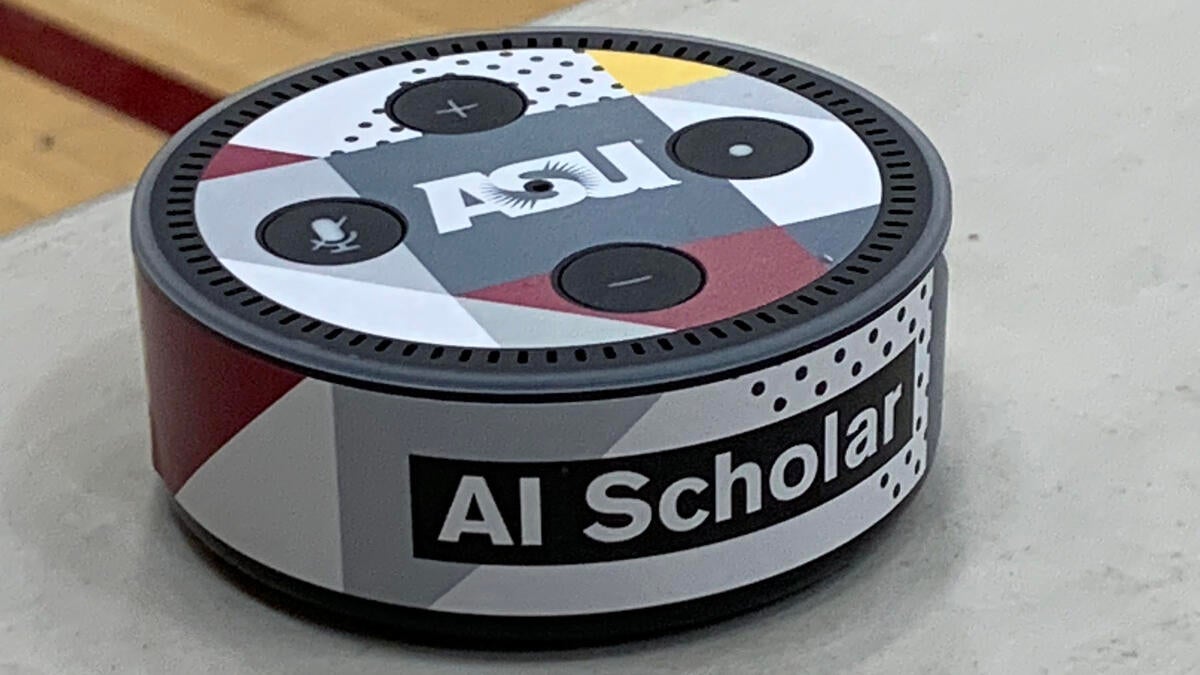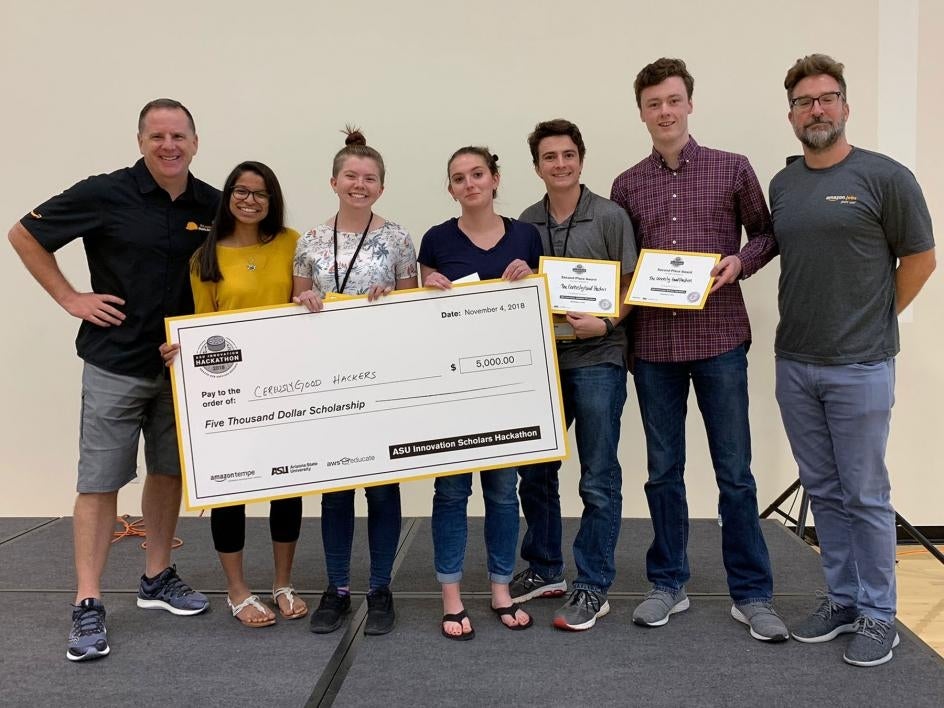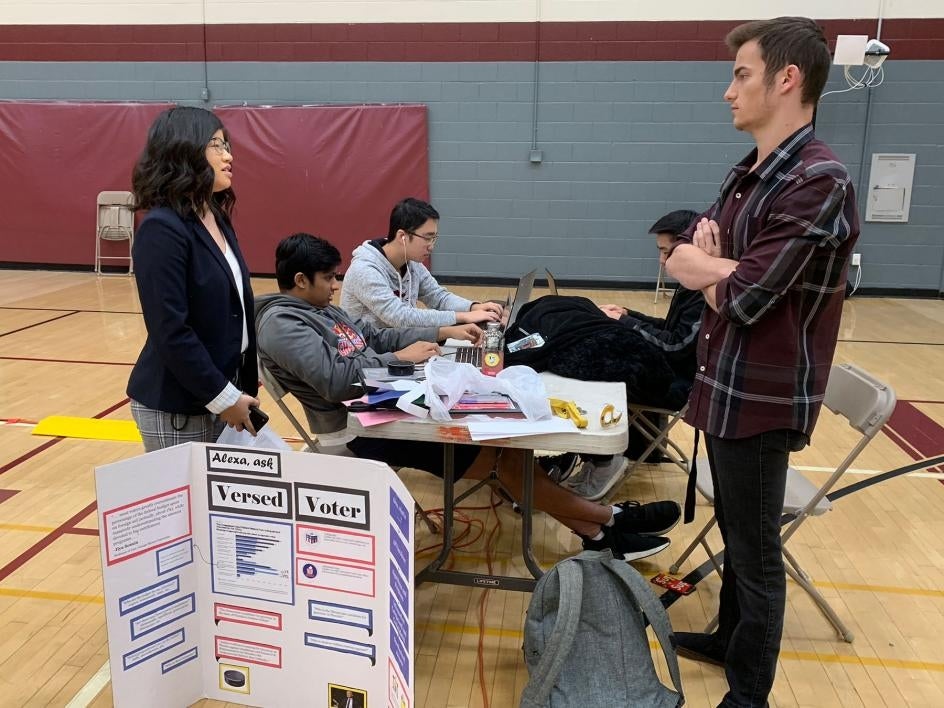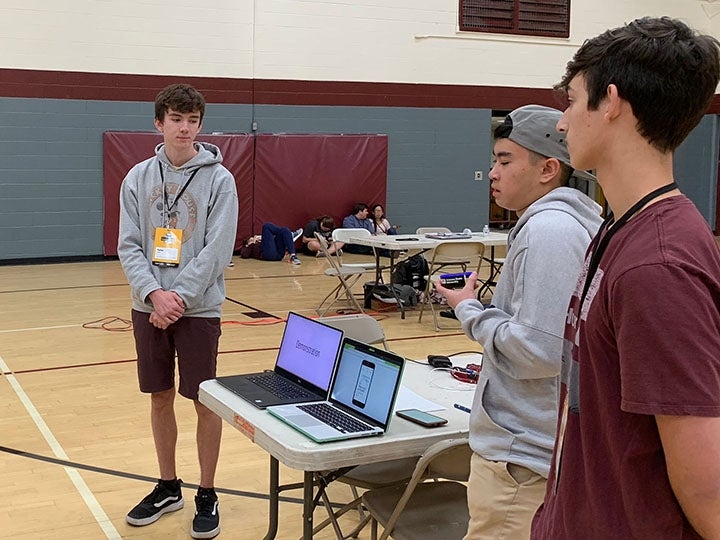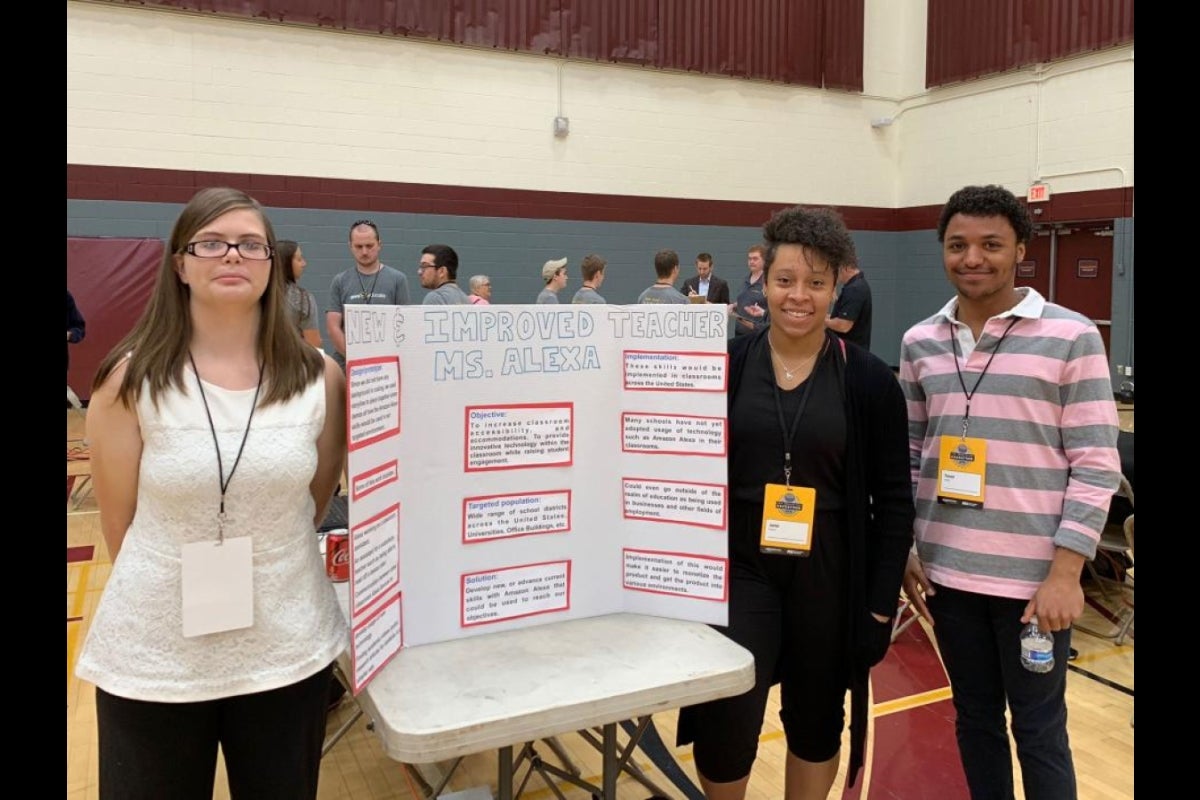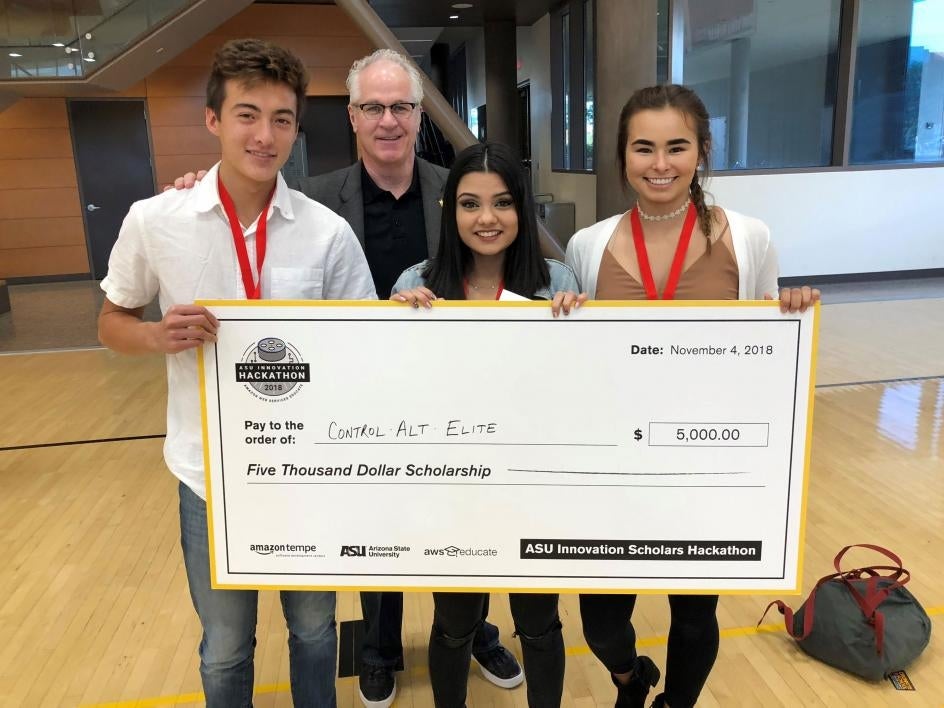“Honey, where’s Mom?”
“Count to 10 and I’ll be there shortly.”
This simple exchange is an example of how an Amazon Echo Dot app, known as a skill, can serve as a connector between an anxious child and a parent or caregiver.
Honey Caregiver was the winning skill created last weekend by Control-Alt-Elite, a team of Arizona State University freshmen participating in the AI Scholars hackathon, a program supported by Amazon Web Services Educate for students interested in developing voice-activated technologies.
The first cohort of nearly 700 AI Scholars has received Amazon-supported workshops, developer kits, free Amazon Cloud credits and Amazon Echo Dots.
The hackathon, which attracted about 75 student competitors who formed 10 teams, required the use of Echo Dot technology to solve a problem in one of three categories: education, sustainability and disability resources. Hackathon participants competed for academic scholarships and an opportunity to meet with Amazon leadership.
Honey Caregiver team member Haily Shigeta, a global politics freshman, explained that children with Down syndrome or autism can become anxious when their routines are upset or they are separated from their caregivers.
“Using the Echo Dot, we can reinforce routines that are so important and offer reassuring words in the caregiver’s voice,” Shigeta said.
In addition to using the caregiver’s voice, the skill can incorporate customized options, such as a messaging app to enable incident-specific responses and voice-guided relaxation techniques.
Other team members were Joseph Dicke, software engineering major, and Karishma Sood, Walter Cronkite School of Journalism and Mass Communication student.
Recycle Buddy, the app created by team Cereously Good Hackers, provides users with regional information about what can be recycled and where.
“Do you know if your disposable cup is recyclable?” asked Kenna Zimmerman, a computer science major. “Recycle Buddy knows, and will not only tell you if it’s recyclable in your area, it can tell you where the nearest recycling plant is located.”
The team’s business plan includes getting information directly from local recycling operations.
Other team members included Tara Paranjpe, computer science major; Aubrey Berger, biomedical engineering major; Joshua Burgett; mechanical engineering major; and Aidan O'Gara, economics major.
The top two teams received $5,000 scholarships for each team member and a trip to Amazon headquarters in Seattle.
“The hackathon was a great opportunity for AI scholars from a variety of majors and backgrounds to work together on innovative ideas and solutions using the Amazon Alexa voice platform,” said John Rome, deputy chief information officer and self-proclaimed voice evangelist at ASU. “It was exciting to see all the comradery and teamwork of these college freshmen and amazing to watch all the great and creative ideas they come up with.”
Two teams tied for third place and received $1,250 scholarships for each member.
Versed Voter, created by Team #1 in Innovation, provides local election information about candidates and initiatives. According to Karissa Lepley, a global studies major, existing apps focus only on national elections.
“Our content comes from a variety of nonpartisan sources and includes information about when and where to vote in your district,” she said.
Other team members included Sean Land, business management major, and computer science majors Brent Li, Alvin Lin and Preet Patel.
PACE, an app by Team Okay Google, teaches young students how to study.
“It’s especially useful for students with attention problems,” explained Parker Poole, an environmental engineering student. “You turn off all of your electronics and rely on Alexa to notify you at the end of your scheduled study interval and you take a break for five minutes. It’s better than using a phone timer because you aren’t distracted by playing a game or checking your messages.”
PACE can also interface with Blackboard or CanvasBlackboard and Canvas are educational learning management systems., enabling students to run their grades through an algorithm that recommends study times for each class.
Other team members included Jacob Markson, an aerospace engineering major, and Zak Sakata, a computer science major.
The Sparky Award provided $100 gift certificates to aerospace engineering major Brianna McCague, arts major Jania Owens and political science major Trevor Webb for their New and Improved Ms. Alexa Teacher app, which allows teachers to keep lesson plans in the cloud and provide audio access while teaching.
More Science and technology

Transforming Arizona’s highways for a smoother drive
Imagine you’re driving down a smooth stretch of road. Your tires have firm traction. There are no potholes you need to swerve to…

The Sun Devil who revolutionized kitty litter
If you have a cat, there’s a good chance you’re benefiting from the work of an Arizona State University alumna. In honor of…

ASU to host 2 new 51 Pegasi b Fellows, cementing leadership in exoplanet research
Arizona State University continues its rapid rise in planetary astronomy, welcoming two new 51 Pegasi b Fellows to its exoplanet…


